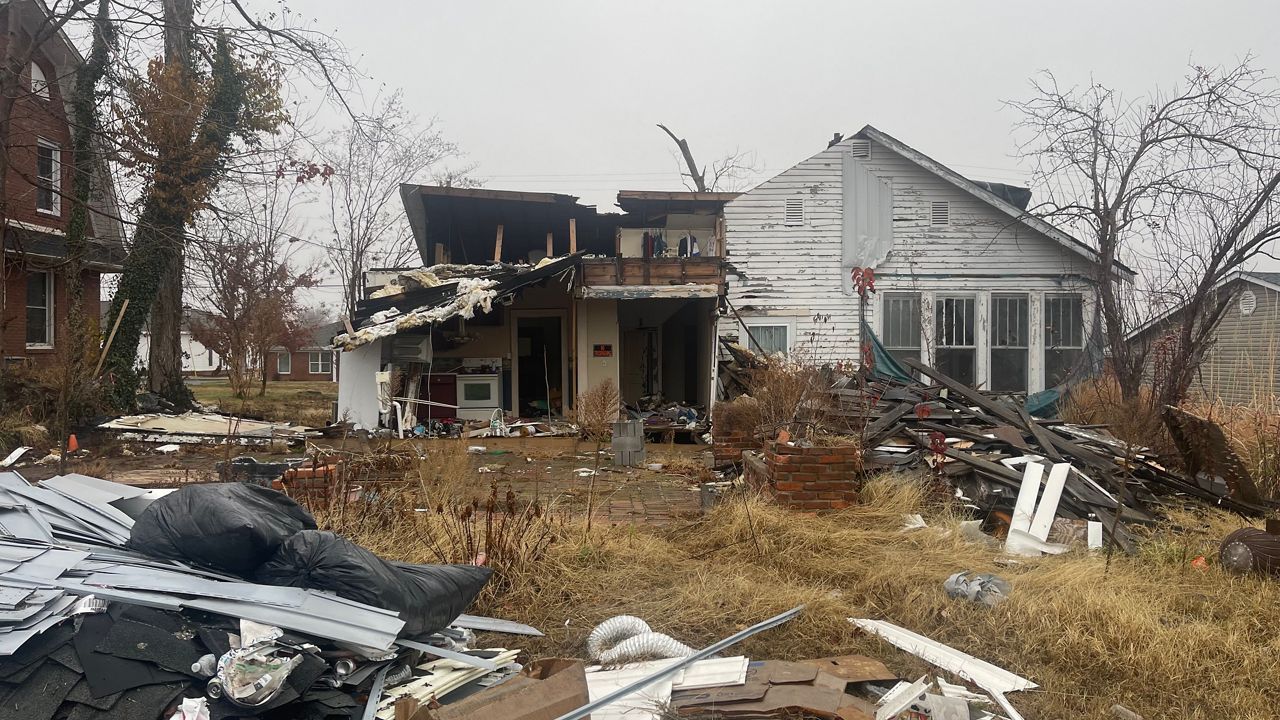FRANKFORT, Ky. — The Kentucky Senate voted Wednesday to create a layer of legislative oversight for relief funds, like the ones created by Gov. Andy Beshear to help people recover from tornadoes and flooding.
The bill, passed by the Senate on a 33-2 vote, goes to the House next.
The Democratic governor insists there's been full transparency of the funds, but the measure started advancing in the Republican-led Legislature following reports that some checks supported by the tornado relief fund went to people unaffected by the tragedy. Republican Sen. Whitney Westerfield said a constituent of his received a tornado relief check despite having never applied for one.
“I thought it was appropriate to get answers to those questions,” Westerfield, the bill’s lead sponsor, said Wednesday. “Not a full-blown investigative audit. We’d like to know where the money went. How did you make distribution decisions?”
Under the bill, lawmakers would receive an annual report of relief funds created by a government agency or elected official — including information on donors, expenditures and recipients. It also seeks information on guidelines used to determine eligibility and allocate relief funds.
Beshear created the funds following tornadoes that tore through parts of western Kentucky in late 2021 and flooding that inundated portions of eastern Kentucky last summer. Relief money paid funeral expenses of storm victims and helped affected homeowners, renters and farmers.
The governor has touted the funds' ability to respond quickly to help people in dire need and for the level of transparency with a website tracking the distribution of money.
“This is an open book,” Beshear said recently. “Everything here is a public record. I’ve announced every single thing that we’ve done with it. It’s been on the website.”
His administration’s handling of the aid came under greater scrutiny after the state Public Protection Cabinet late last year issued more than $10 million in $1,000 increments from a relief fund. Reports surfaced that some people unaffected by the tornadoes were mistakenly sent payments. The Lexington Herald-Leader and WPSD-TV reported on the misdirected checks.
Westerfield said Wednesday he appreciated the generosity of people who donated to help Kentuckians in such a time of need. But he said the relief funds raised constitutional questions about the state allocating money that wasn't appropriated by the Legislature.
The bill asks that the reports on such relief funds include the statutory and constitutional authority for a state agency to raise money and spend money absent an appropriation by the Legislature.
“This works great when it’s something all of us are in agreement with," Westerfield said. "There’s not a member up here — from the far-right to the far-left to the middle — that’s going to oppose fundraising for people that are hurt in natural disaster areas. But what happens when the cause is something that only half of us like?”
The Democratic governor has drawn Republican criticism since the reports surfaced that some relief payments went to people unaffected by the tragedies.
In a statement after the bill won Senate passage, state GOP spokesman Sean Southard said: “We applaud the Senate for holding Andy accountable and seeking more transparency” for the relief funds.
Beshear is seeking reelection this year, and his response to storm disasters on both ends of Kentucky has contributed to his strong approval ratings in the GOP-trending Bluegrass State. A dozen Republicans will compete in the spring primary for the chance to challenge him.
Beshear has said the relief fund had “an error or a fraud rate that is at or below 1%,” which he said compares favorably to similar publicly managed funds across the country.



